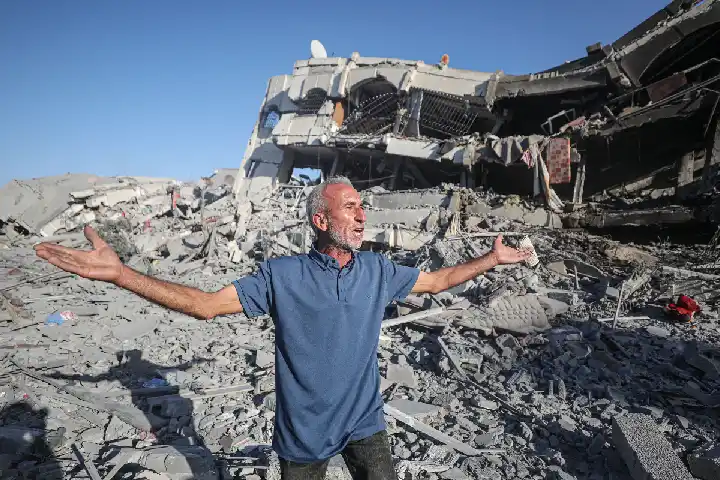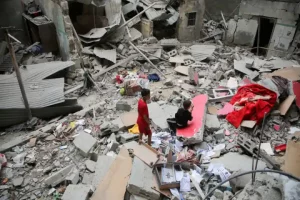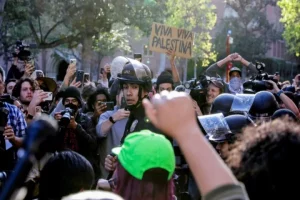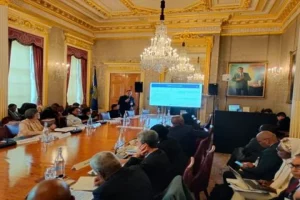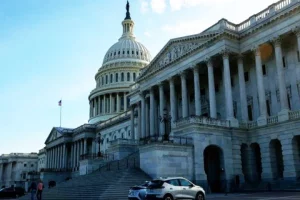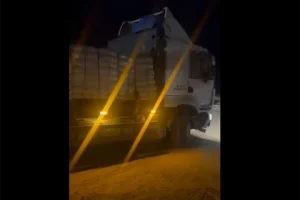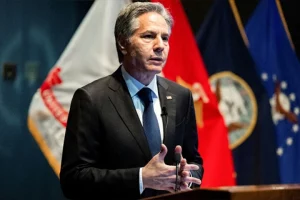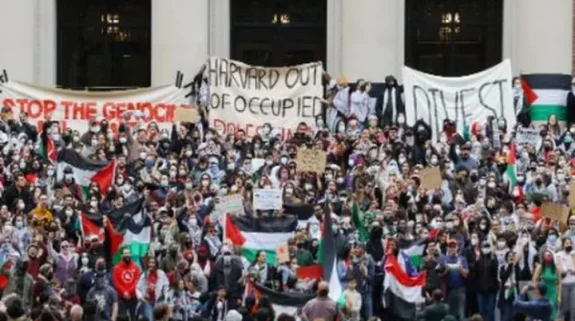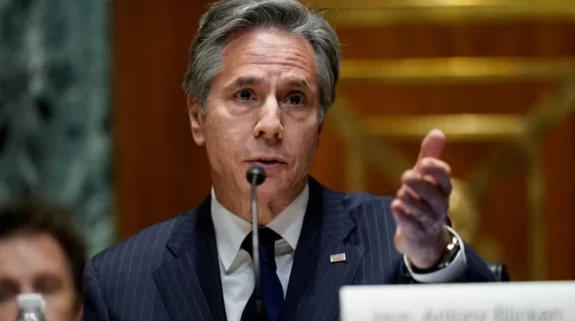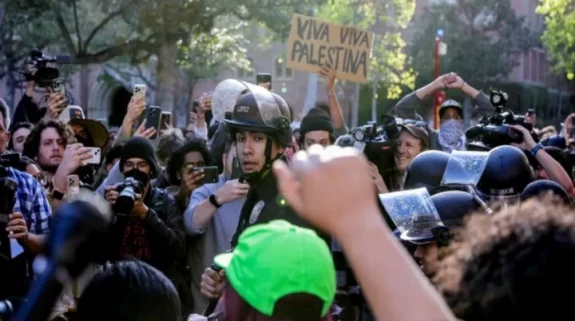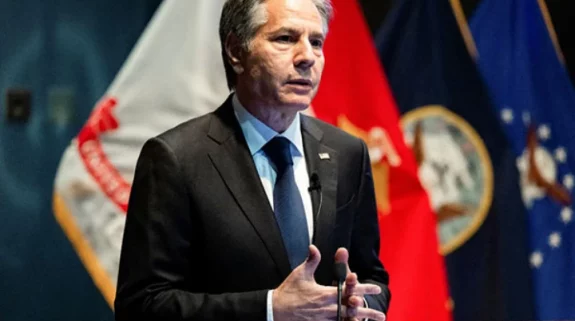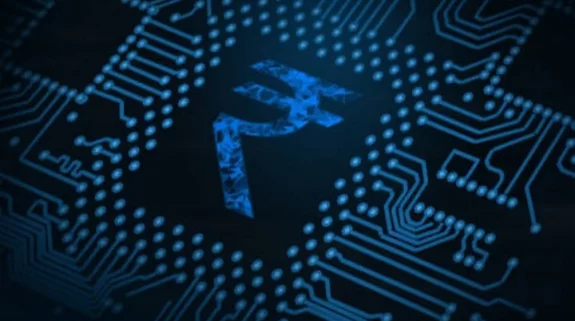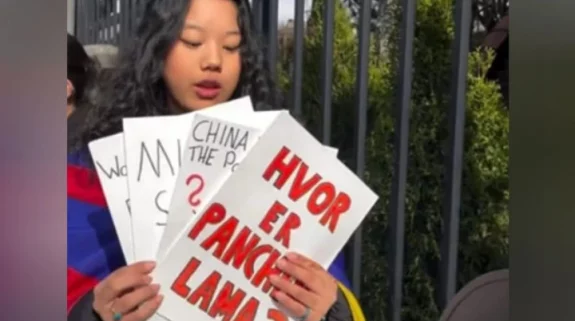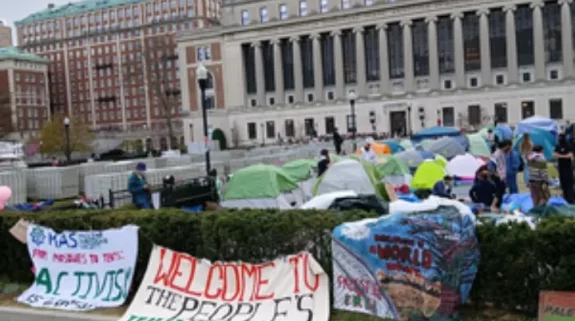India, a leading power of the Global South, made its position clear on the floor of the United Nations General Assembly that the ongoing Israel-Hamas War sprouted from the “terror strikes” conducted by Hamas against Israelis on October 7, and that with condemnation of the Hamas terror, the world community must work to immediately find solution to the unfolding humanitarian crisis. India has also advocated opening an “aid route” to Gaza and has already handed over its consignment of assistance to Egypt.
India abstained in a UN General Assembly vote on a resolution that called for an immediate humanitarian truce in the Israel-Hamas conflict on Friday (October 27). The resolution, which does not contain the words ‘Hamas’ and ‘hostage’, was carried with 120 votes in favour and 14 against – way above the two-third majority that such resolutions have to garner to become declarations.
Ambassador @PatelYojna, Deputy Permanent Representative, delivered the explanation of India's vote at the 10th #UNGA Emergency Special Session today
Statement: https://t.co/6tOLVQnNv4 pic.twitter.com/phbvs5GiP8
— India at UN, NY (@IndiaUNNewYork) October 27, 2023
The resolution, which called for an “immediate, durable and sustained humanitarian truce leading to a cessation of hostilities” and unhindered humanitarian access to the Gaza Strip, was drafted by a group of 22 Arab countries. It was proposed by Jordan.
Prime Minister Narendra Modi spoke to Jordanian King Abdullah II and Egyptian President Fata al-Sisi on Saturday to discuss the Israeli counter-offensive post the “terror attacks” on October 7 and the continuing global efforts to rush humanitarian aid to war-ravaged Gazans.
India’s concern over terror emanates from its own experiences of enduring such attacks for years and the need for the build-up of an international consensus against the menace in all its manifestations.
“We share concerns regarding terrorism…loss of civilian lives”: PM Modi speaks with Egyptian President Al-Sisi amid Israel-Hamas war
Read @ANI Story | https://t.co/5UPg83q5sg#PMModi #Israel #Hamas #Egypt #AlSisi pic.twitter.com/Q4qvJpxvJo
— ANI Digital (@ani_digital) October 29, 2023
Many other countries from the developing economies, or the Global South, have condemned the Hamas attacks. However, their reactions are different to that of India and some Israel-friendly countries.
Meanwhile, as the war in Gaza has escalated and reports of civilian casualties spread, most of the Global South countries have begun to blame Israel for such humanitarian catastrophe and called for immediate implementation of a ceasefire.
Four resolutions calling for a solution to the crisis in the decisive UNSC have already fallen.
Echo in the Global South
Brazil is the largest economy and the mightiest country in the Latin American region. Countries in this geography are known for their assertive positions on affairs related to global politics. Brazilian President Lula da Silva in first reaction after October 7 rejected all acts of violence and condemned terrorism, but did not explicitly name Hamas.
Brazil also “reiterates its commitment to the two-state solution… within mutually agreed and internationally recognised borders” and “reaffirms that the mere management of the conflict does not constitute a viable alternative for resolving the Israeli-Palestinian issue, and the resumption of peace negotiations is urgent.”
Brazil, as the president of the United Nations Security Council for October, also called for a closed-door emergency session over escalation of the conflict. The meeting though failed to produce any agreement, or statement.
South Africa, another major economic power of the Global South, has called for an “immediate cessation of violence, restraint and peace.”
“The new conflagration has arisen from…illegal occupation of Palestine land, desecration of Al Aqsa mosque & Christian holy sites and ongoing oppression of the Palestinian people,” the South African foreign ministry said in a statement on Saturday, calling for a return to the “1967 internationally recognised borders with East Jerusalem as capital” and also mentioning “the right of return.”
Nigeria, a major African nation, for its part, has “called for de-escalation and ceasefire” and a “peaceful resolution of the conflict through dialogue.”
The Mexican foreign minister has also condemned the suffering of Israeli civilians on October 7 and the subsequent plight of Gazans. “It is essential to resume the process of direct and good faith negotiations between both parties…within the framework of the two-state solution…within mutually agreed upon and internationally recognised secure borders in accordance with (UN resolutions),” the Mexican statement at the
Bangladesh’s Ministry of Foreign Affairs has stated that it “denounces the ongoing armed conflict between Israel and Palestine and deplores the resultant loss of innocent civilian lives (and) calls for an immediate ceasefire.”
“Living under the Israeli occupation and forced settlements in Palestinian territory will not bring peace,” Bangladesh has said at the UN, adding that Bangladesh “supports a two-state solution, Palestine and Israel, living side by side as independent states free of occupation following UN Resolutions No. 242 and 338.”
Indonesia’s Ministry of Foreign Affairs said it “is deeply concerned with the escalation of conflict between Palestine and Israel.”
“Indonesia urges the immediate end of violence,” the statement said. “The root of the conflict, namely the occupation of the Palestinian territories by Israel, must be resolved, in accordance with the parameters agreed upon by the UN.”
Expectedly, Arab countries are at the forefront of diplomatic calls for ceasing violence and supply of relief materials to those suffering in Gaza. Friday’s motion at the UNGA was moved by 22 Arab nations and shepherded by Jordanian ambassador to the UN.
Overall, voices and official positions adopted by most of Global South countries are least aligned with the Israeli and US stance on the conflict, and they have largely at variance with that and seek swift movement for finding ways to deescalate the violence that is devouring innocents every hour, and even threatens to extend to multiple fronts world over.
‘Contextualisation and Decontextualisation of Conflict’
To understand the reaction and outburst of emotions in the Global South over the festering Israel-Hamas crisis, Professor Sujata Ashwarya of the Centre of West Asian Studies, Jamia Millia Islamia, says that Israel-led discourse seeks to keep it ‘Hamas October 7 attack-centric’ so that the context to the whole conflict that has its roots in the history of Israeli occupation of Palestine can be pushed to the wall. “There is no doubt that the October 7 Hamas attacks were brutal and civilians were mercilessly killed in those attacks. But, you see the Israeli side has maneuvered to keep the echo entirely around those attacks so that their more savage retaliatory attacks in Gaza where innocents are getting killed regularly at a larger scale may remain mere regrets, if finding mention at all. The Global North led by the US, UK, France, and other big economies are sadly backing this. Countries in the Global South have opposed it and have reverted to the context of the conflict – that is the two-state solution to the Israeli-Palestine problem as per UN resolutions. Unfortunately, these countries lack everything that is required to make their voices find practical implementation other than humanitarian outcry,” she said while talking to the India Narrative.
Professor Ashwarya also pointed out that the Global South has its own baggage in holding a moral ground in the current conflict. “See, most Arab or Middle Eastern countries are autocracies that have severely suppressed uprisings in their home countries. All of them have been equally bloody and destructive conflicts,” she said.
Pervez Bilgrami, an expert on West Asian geo-political developments, sees the reaction of the Global South consistent with history, yet driven by policy to pursue their geo-political interests. “Many nations in the Global South have historically supported the Palestinian cause and called for a two-state solution, with East Jerusalem as the capital of a Palestinian state. However, it’s important to note that there is no single, uniform stance within the Global South, as countries in this group have diverse perspectives and interests. Particularly, those with strong ties to the US have taken a more cautious approach to the conflict to maintain their relationships with both Israelis and Palestinians,” he said in a conversation with India Narrative.
For Dr Omair Anas, research director of the Centre for West Asian Dialogue, the divide of opinion in the Global North and Global South on the Israel-Hamas conflict is meaningless. “It’s merely symbolic that the nations of the two blocs are registering their reactions and adopting diplomatic positions. It’s understandable as per their own interests. Otherwise, how can we explain that Tunisia, which had opened the headquarters of the Palestinian Liberation Organisation (PLO) in its capital in 1960’s, remained absent in the UNGA voting on the conflict,” Anas told India Narrative.
Anas said that only three powers matter in the Global South – China, Russia and India.
“Russia and China are in a position of taking leadership roles on this issue. Russia seems to be appearing doing something – by hosting Hamas leaders along with Palestinian Authority’s Mahmoud Abbas, and even coordinating with Iran, which has emerged as a pivotal character in this war theatre. Though the whole picture is foggy. China hasn’t emitted clear signals as well. And India is walking a diplomatic tightrope and unlike some perception, New Delhi is not pro-Israel and is totally on the side of humanitarian approach,” he told India Narrative.
Palestinian President Abbas expected in Moscow
REUTERS#Palestinian President Mahmoud Abbas is expected to visit Moscow, Russian news media quoted the Palestinian envoy to Moscow as saying late on Monday.“We are awaiting an official statement from the Kremlin, from the Russian… pic.twitter.com/QBTCS4Nkml
— The Jerusalem Post (@Jerusalem_Post) October 9, 2023
Another West Asia expert in a conversation with India Narrative hinted towards a revelation that if confirmed could influence views of some countries in the developing world. “There is understanding in the Palestinian and Arab circles that the military wing of Hamas was manipulated by Iran and it probably worked as a proxy of Tehran to organise October 7 attacks without consultations with its top leadership. There was a clear gap between coordination or communication between Khaled Meshal-led political wing of Hamas and its military wing,” the expert told India Narrative.
He also said that the October 7 attack also took place in connivance with Egypt that maintains an active communication line with Hamas leadership in Gaza, and was miffed with the world ignoring its economic crisis.






